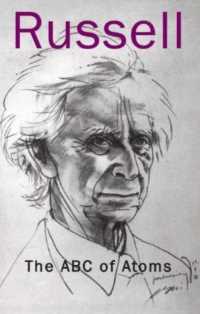- ホーム
- > 洋書
- > ドイツ書
- > Humanities, Arts & Music
- > Psychology
Full Description
This book calls basic assumptions, prominent theories, commonly used test methods and even the phrase executive functioning into question. It places new emphasis on stimulus processing and on the relationship between movement and thought.







